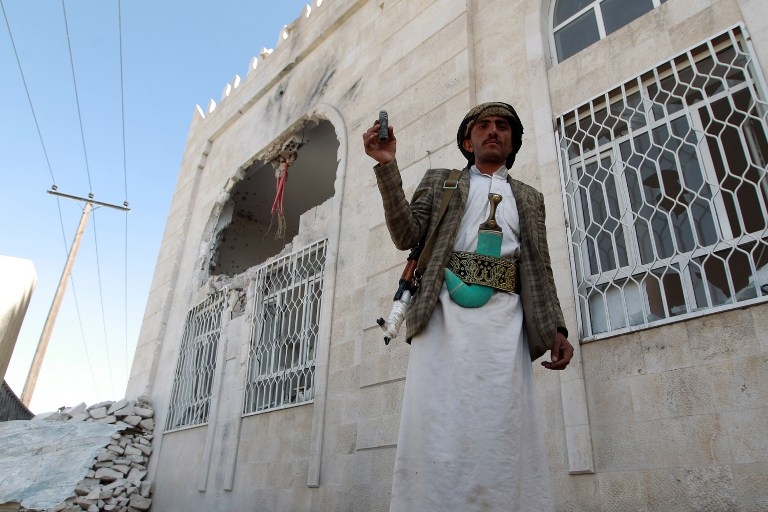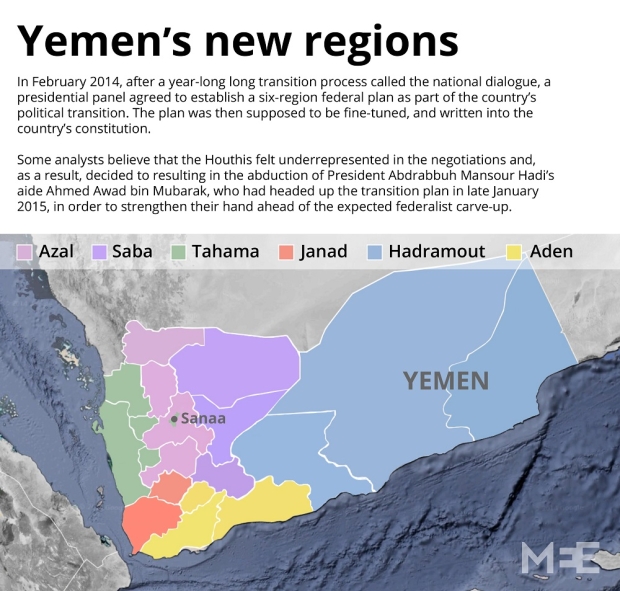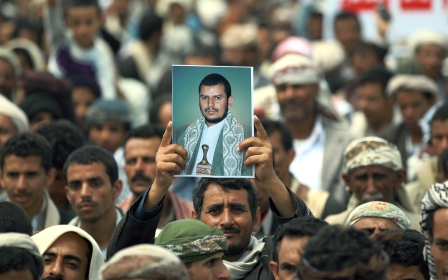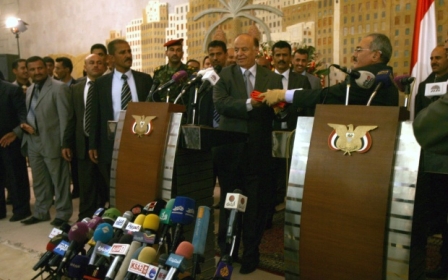Yemen's Houthis, government reach agreement to end hostilities

Houthi fighters reached an agreement with Yemen's government on Wednesday to end a violent stand-off in the capital which saw the presidential palace surrounded by the Shiite militiamen amidst fears of a coup in the impoverished Arab nation.
As part of the deal, brokered late on Wednesday, the Houthis agreed to the immediate release of President Abdrabbo Mansour Hadi's chief of staff, who the group kidnapped on Saturday, and to withdraw their fighters from around the presidential palace.
President Hadi will amend the constitution and allow the Houthis greater political representation, including the right to nominate government officials, said Yemen's spokesman in Washington.
The Houthis also agreed to remove checkpoints they had set up in the capital since Monday, the presidency said in its statement, adding that civil servants would return to work and schools and universities would reopen.
But with Houthi fighters still in control of much of the capital it was not clear whether the agreement would hold.
Hadi remained behind closed doors at his residence for much of Wednesday after Houthi militiamen removed his guards and deployed their own fighters there and outside the presidential palace, prompting fears of a coup.
The Houthis, who swept into Sanaa four months ago, seizing government buildings and emerging as the dominant force in the country, said they had not toppled the leader and that he is free to leave his home if he chooses. Further limiting his options, the Houthis have threatened to prosecute Hadi if he resigns.
Their defeat of the presidential guards in gun battles and artillery duels in recent days adds to disarray in a country where the United States is also carrying out drone strikes against one of the most powerful branches of al-Qaeda.
Houthi fighters allowed Prime Minister Khalid Bahah to leave his residence on Wednesday after a two-day siege, a spokesman said.
The leader of the Houthis, 33-year-old Abdul-Malik al-Houthi, delivered a lengthy ultimatum to Hadi, demanding his cooperation on several contested political issues, including fighting corruption and amending a draft constitution, which devolves some central government powers to six regions.
Al-Houthi stopped short of announcing a takeover of the government, instead calling his measure “open-ended” and demanding that Hadi use the army to impose security in Yemen.
Analysts and diplomats say he is now Yemen’s de facto ruling power.
“Except for Hadi’s own presidential guards, not a single military unit is contesting the Houthis' dominance,” Abdulghani Al-Iryani, a Yemeni political analyst told Middle East Eye. “They (the Houthis) are the new powerbrokers of Yemen.”
There were concerns that conflict might break out in southern Yemen, where armed fighters, including some loyal to Hadi, moved on Wednesday to close the Aden airport and seal off areas along the former border between southern and northern Yemen.
Aden's main security body said in a statement that it was closing its airport, its seaport and entrances to the city due to "dangerous developments in the capital" and "attacks on the symbol of national sovereignty and constitutional legitimacy, President Abdrabbo Mansour Hadi."
Responding to the turmoil, Ali Abdullah Saleh, Yemen’s former president who was ousted after mass protests in 2011, released a statement on Wednesday endorsing the Houthis' demands for reform and calling for early elections.
Saleh, who ruled Yemen for more than three decades, is the only Arab leader ousted by Arab Spring protests to remain at large. He has been accused by politicians close to Hadi of backing the Houthis as they captured large parts of the capital in September.
In November, the US imposed financial sanctions on Saleh accusing him and two Houthi leaders of “using violence and other means, undermined the political process in Yemen and obstructed the implementation of its political transition.” In recent months, Saleh’s supporters have actively promoted the idea that Saleh’s eldest son, Ahmed Ali Saleh, should run in elections to replace Hadi as president.
Tawakkol Karman, a Yemeni Nobel Peace Prize Laureate, slammed the Houthis after they took control of the presidential palace.
"The brute force you use to humiliate Yemen and test the patience of its great people will turn against you," she said, calling the leader of the group Abdelmalek al-Houthi "illegitimate".
Karman, a Yemeni journalist and activist who became the face of Yemeni uprising in 2011 as part of the Arab Spring that ousted then-President Ali Saleh, expressed support for Western-backed President Hadi.
"We appreciate your steadfastness and refusal of the armed militants’ blackmail and bullying supported by the ousted Ali Abdullah Saleh," said the activist, referring to the current turmoil as a "coup" against Hadi.
New MEE newsletter: Jerusalem Dispatch
Sign up to get the latest insights and analysis on Israel-Palestine, alongside Turkey Unpacked and other MEE newsletters
Middle East Eye delivers independent and unrivalled coverage and analysis of the Middle East, North Africa and beyond. To learn more about republishing this content and the associated fees, please fill out this form. More about MEE can be found here.





